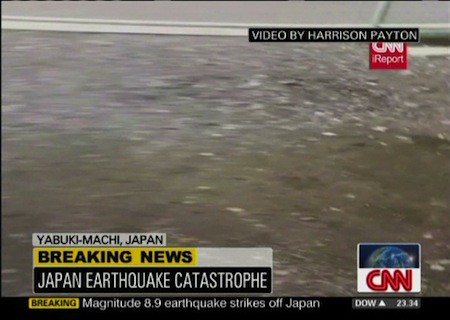
By Tiffany Ryan (@TiffanyRyan)
I remember the day the of the Challenger explosion vividly. I was home from school sick on the couch, excited to watch the shuttle launch. I remember yelling to my mom, “I think the shuttle just exploded and being glued to the TV for the rest of the day, mourning with the rest of the nation.
My experience with 9-11 was a small evolution from this. I remember hearing someone in the office mention that there was an incident in the twin towers in NYC. I pulled up CNN on the Internet, called my parents to tell them to turn on the TV, and became glued to the TV for the rest of the day, again mourning with a nation.
Times have changed significantly. I learned about the devastating earthquake in Japan from people personally affected by it first on Facebook. Then I read tweets from people in Japan, people who knew people in Japan, and of course, news sources who were providing updates. I monitored updates on it throughout the day on the Internet. And finally, in the evening, twelve hours after I first heard about it, I turned on the TV for an update.
Waiting even short periods of time for updated information is an absurd concept in our always-connected society. Rather than rely on news sources for information, we rely on individuals not newscasters and journalists to documenting events as they occur on Facebook, Twitter, Flickr, Google Maps, blogs and more.
The recent Tsunami in Japan was a first because this tragedy affected a nation that not only produces electronics, but is a power user of technology such as camera phones, handheld video and digital cameras. Unlike last years earthquake in Haiti, Japan is extremely well-wired for recording such disasters and many people were able to see the horrific effects of the tsunami in near real-time and seek and share information as it occurred.
However, in citizen based media feeds, more news isnt always good news. Inaccurate information can spread like wildfire. Twitter rumors ran rampant during the Tsunami noting the death of several Japanese celebrities, including rumors about the demise of Hello Kitty designer Yuko Yamaguchi. Once a tweet is issued, theres no taking it back, and retweets enable false information to spread like wildfire.
Social media is fundamental to organizing collective action. During the crisis in Haiti last year, texting and tweeting donations enabled people to help earthquake victims using new technologies. However, theres a fine line between philanthropy and promoting a personal agenda. Microsoft issued an apology following accusations they were using the Japan quake disaster as a chance to promote its Bing search engine. Conversely, Apple also made a plea for people to get involved using iTunes to make donations without raising an eye. While social media is a viable platform for corporations to help during times of crises, care must be taken to ensure the intentions will not be mistaken for profit.
Social media will continue to evolve, but will always play a role in crisis communications. We will receive updates from multiple platforms, different stakeholders, and it will continue to become ever more engaging and dynamic. My personal hope is that as we become more engaged in these crises based on the first-hand accounts and updates, well become more mobilized and motivated to take action to help those affected.
One Response to The Increasing Role of Social Media During A Crisis